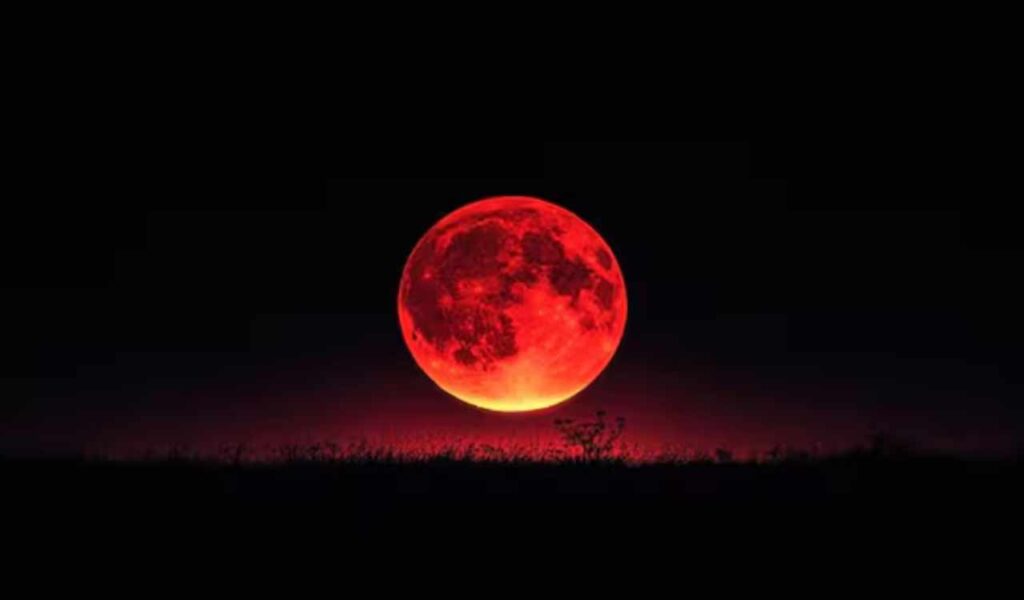A rare total lunar eclipse, known popularly as a “blood moon,” will bathe the night sky in shades of red on September 7. For millions across India, the celestial spectacle offers both wonder and cultural resonance, marking the year’s final total lunar eclipse.
A Celestial Event for the Masses
On the evening of September 7, India will witness a full lunar eclipse visible from start to finish. According to astronomers, the penumbral phase will begin at 8:58 p.m. IST, with totality lasting 82 minutes between 11:00 p.m. and 12:22 a.m. The moon will reach its deepest shadow at around 11:41 p.m., visible across every corner of the country.
The event will also be observable across Asia, Africa, Europe, and Australia, with nearly 70 percent of the global population able to watch it. North America, however, will miss the show due to daylight hours.
Why the Moon Turns Red
The striking crimson hue of a lunar eclipse is the result of Earth’s atmosphere bending sunlight. Shorter wavelengths scatter, while the longer red tones filter through, casting a rusty glow on the moon. The effect has inspired centuries of myths, spiritual beliefs, and scientific curiosity alike.
In India, the eclipse coincides with deep cultural associations. While astronomers highlight the science, astrologers and tradition-bound households often interpret such eclipses with caution, prescribing rituals and dietary practices.
The Significance of This Eclipse
This is the last total lunar eclipse of 2025, making it a particularly notable event for skywatchers. For scientists, it offers a natural laboratory to study atmospheric conditions. For the public, it is a rare, accessible moment of cosmic theater that requires no telescopes or protective eyewear—only clear skies.
Across Indian cities, astronomy clubs and science organizations are planning viewing sessions, while digital platforms will livestream the eclipse for those clouded out by monsoon rains.
A Shared Human Experience
Events like these serve as reminders of humanity’s enduring fascination with the heavens. Whether through ritual, science, or sheer wonder, a lunar eclipse unites billions of people in a single act: looking up. As the moon glows red this weekend, India will be at the heart of that shared global gaze.


